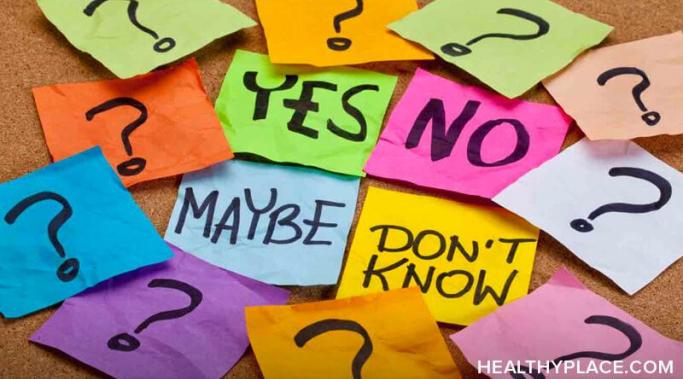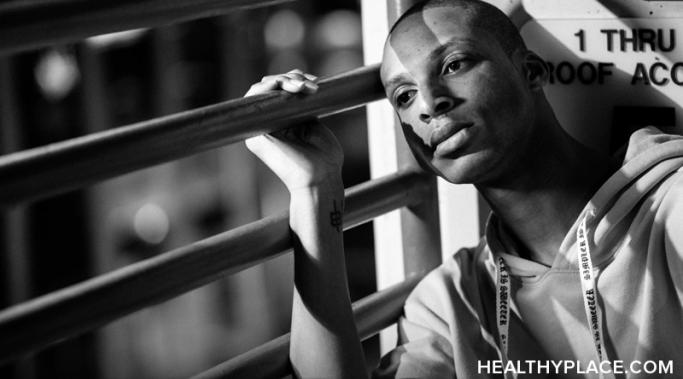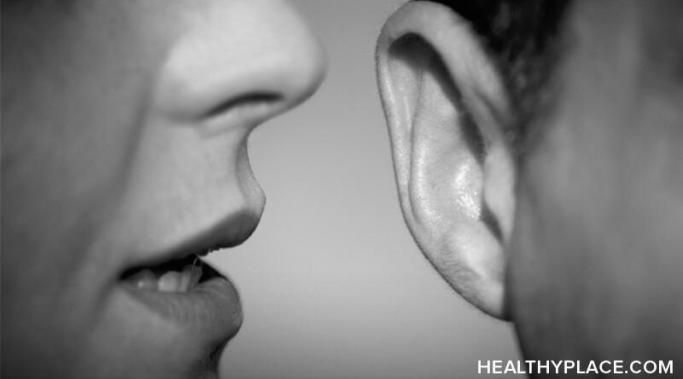Many people who experience periods also experience depression in the form of mood fluctuations that can range anywhere from frustrating to debilitating. If you're like me and you're in recovery from a mood disorder like depression, these monthly fluctuations can be a real source of fear and hopelessness.
Mental Illness Relapse
A common bit of wisdom when it comes to mental illness recovery is that recovery isn't linear. You won't necessarily go from "sick" to "healthy" in a straight line. You will likely have setbacks, backslides, and slip-ups and your journey might look more like "sick," "sicker," "better??" "worse," "functional but still mentally ill." In my experience, this back and forth may continue for years. I can intellectually appreciate that recovery is not a linear process, but emotionally, it often feels like I'm failing.
Are you using old coping mechanisms that no longer serve you? Coping mechanisms are habits and behaviors that we use in order to cope with problems we can't necessarily solve. For instance, if you have to take a big test and it gives you tremendous anxiety, you can't just not take the test or simply stop being anxious. Instead, you need to cope with your anxiety to get through the experience. But what happens when the old coping mechanisms we use actually start causing problems instead of solving them?
The Internet both helped and hurt my mental health. I truly believe the internet has done wonderful things for those with mental illness in our day and age. Before the internet, if you had a relatively rare mental illness, you might have felt completely alone or at fault for your situation. Those feelings persist today, but I think the internet has played a huge role in decreasing those feelings.
In addition to recovering from mental illness, it's also important for us to learn how to prevent mental health relapse in times of stress. Lately, my mental health has been doing really well. I've put in a lot of work, and it's finally paying off, but recently, some family stress has put all of my progress to the test. I've noticed a lot of my typical mental illness symptoms struggling to reemerge, to rear their ugly heads and completely derail my life. Luckily, I've managed to keep them to a minimum and prevent a full-on mental health relapse. I thought it would be helpful to share how I'm managing to prevent relapse.
How do you determine if you're depressed or just sad? Navigating emotions while recovering from mental illness is incredibly tricky. For me, mental illness completely broke my internal emotional compass. Before I experienced depression, I could identify emotions like sadness, worry, and joy fairly easily. But after I experienced depression, it became nearly impossible to distinguish between depression and sadness or nervousness and anxiety. Even though I've been recovering for years, this is still one of my biggest struggles as a human being. Luckily, all those years in therapy have taught me a few things, and I'd like to share them with you.
September is Suicide Awareness Month, and in honor of that, I want to share my experience with feeling semi-suicidal. My hope is that other people who have occupied this awful in-between space will understand that what they're going through is very real, and someone else has been there too. (Note: This post contains a trigger warning.)
As a mental health worker, I am always concerned about how first responders treat mental health concerns and crises. Two such duties are safety checks and dealing with suicide attempts. (Safety checks are when law enforcement checks on someone who has been reported in danger or will possibly harm himself or others.) Here in Toledo, suicide attempts are taken very seriously by emergency services. However, safety checks are of low priority. (Note: This post contains a trigger warning.)
I've resisted recovery for all kinds of reasons, including because I was sick of trying to be perfect. I spent most of my adolescence trying not to be like other teenagers, not to go through "phases" or be bad. I tried so hard to do things "right." When mental illness appeared in my life, I could barely do things at all, let alone do them "right," so I got angry.
Have you ever wondered what it's like to hear voices? Hearing voices is a classic symptom of schizophrenia. The bad news is, they're sheer torture. The good news is, medication can help--I haven't heard voices in several years. But for those of you who wonder, here's what it's like to hear voices.









